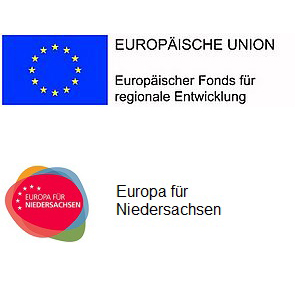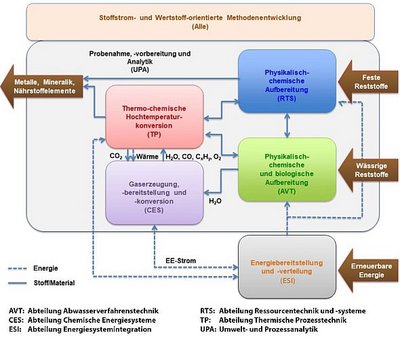ERDF project
Investments for a combined and unified technology concept of sustainable material and energy cycles, "CUTEC-I"
The "CUTEC-I" project is being supported with funding of 2.9 million euros as part of the ERDF guideline "Innovation through universities and research institutions". Together with the TU Clausthal and the research center's own contributions, around 3.8 million euros are available to be invested in new equipment and facilities during the project period until June 2022.
The plan is to use the investment funds to create extended basic equipment in the individual scientific departments of the CUTEC research center. On this basis, innovative process developments in the fields of raw materials and energy and beyond will be made possible for the coupling of these two fields of research. This coupling under one roof as an interdisciplinary, operational platform in intensive scientific interaction with the university institutes of Clausthal University of Technology is forward-looking for the solution of such complex tasks.
The particular focus here is on linking the sustainable generation and use of energy and its use for the recovery of raw materials.
This is to be achieved by using the equipment to be procured in non-commercial research projects that continue the successful work of the departments. The six specialist departments will thus receive effective support and will be able to further expand and thematically interlink their successful scientific work.
The input streams of the approach are solid and aqueous residues, which are increasingly generated due to the increasing closure of material cycles in the context of the circular economy. These are treated using and providing renewable energies through process engineering processes with the aim of providing secondary raw materials as marketable products, such as metals, minerals and nutrients. Figure 1 illustrates the planned interdisciplinary approach of the departments for this sustainable approach.
The associated reduction in greenhouse gases and the consumption of primary raw materials is expected to contribute to the development of a sustainable industrial society. This is a valuable scientific and technical contribution to society, especially against the backdrop of the current climate change debate.

